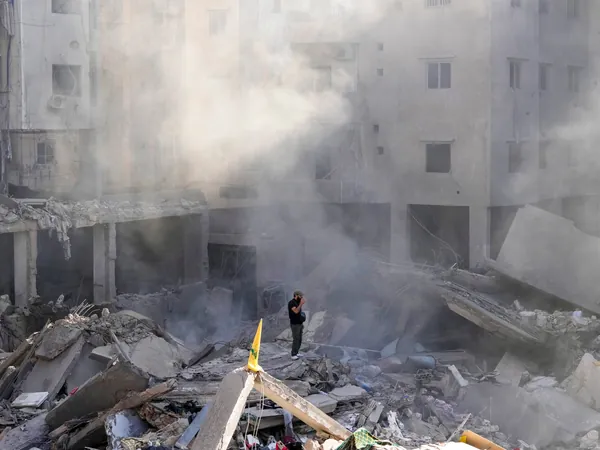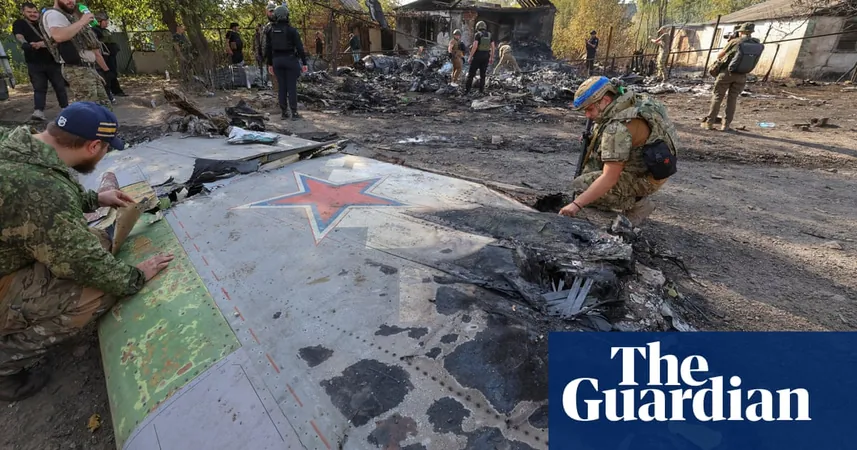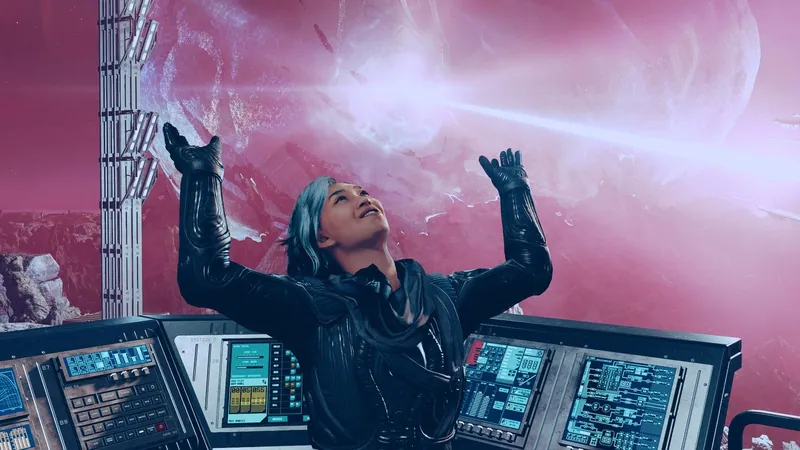
Israel on a High After Nasrallah's Elimination: Growing Calls for Ground Invasion
2024-09-30
Overview of the Shift in Israeli Politics
In a tumultuous year marked by division and debate over Israel's response to the devastating Hamas attack on October 7, the landscape has shifted dramatically following the recent high-profile assassination of Hezbollah leader, Hassan Nasrallah. An operation that has been hailed by various analysts as a strategic win for Prime Minister Benjamin Netanyahu has also sparked unexpected unity among Israeli politicians and the general public.
The Impact of Nasrallah's Elimination
The successful operation—a strike involving bunker-buster bombs that decimated several residential buildings in Beirut—has given Israeli leaders a reason to rally. Opposition figures, traditionally critical of Netanyahu, have joined forces in congratulating the military. Former Prime Minister Yair Lapid made headlines with a fierce statement, asserting that those who attack Israel should 'know that whoever attacks Israel is a son of death.' Benny Gantz, another key political figure, described Nasrallah's killing as a 'matter of justice,' viewing it as a pivotal moment to push forward the war agenda.
Calls for Ground Invasion
With the backdrop of ongoing conflict in Gaza, Israel's objectives are often articulated around restoring security to the nation's north and ensuring the release of captives held by Hamas. This is particularly urgent as an estimated 60,000 Israelis have been displaced due to the persistent threat of crossfire between Israel and Hezbollah.
Public Sentiment and Military Strategy
The elimination of Nasrallah has intensified calls within Israeli society for a more aggressive approach against Hezbollah. Despite international criticism over the humanitarian crisis in Gaza, including the tragic loss of over 41,600 civilian lives and significant casualties in Lebanon, many Israelis feel emboldened. Renowned pollster Mitchell Barak remarked that the death of an 'archenemy' has galvanized confidence and enthusiasm for a potential land invasion of Lebanon.
Troop Deployments and Strategic Considerations
Indeed, some military strategists are advocating for a decisive action against Hezbollah to prevent it from regrouping. The potential establishment of a buffer zone to secure the return of displaced civilians from northern Israel is under serious consideration. Mairav Zonszein, a senior analyst at Crisis Group, highlighted that many are now inclined to view a military presence in Lebanon as necessary to ensure security against Hezbollah's resurgence.
Debate on Military Engagement
The Israeli Northern Command has seen increased troop deployments in recent weeks, as military leaders evaluate the degradation of Hezbollah's capabilities. Various opinions persist about the wisdom of a large-scale invasion, with cautions voiced against overextending Israel’s military resources on two fronts. Political scientist Ori Goldberg pointed out that the current atmosphere reflects a paradox of readiness for invasion coupled with fear of entrapment in prolonged conflict.
Geopolitical Complications
Adding to the complexity of the situation, Iran's role as Hezbollah's primary backer looms large, with potential consequences of Nasrallah’s death still unclear. Public gatherings in Israel have been limited due to fears of retaliation, particularly in light of the volatile security situation.
Conclusion and Outlook
Despite these challenges, there is a prevailing sense of optimism within parts of Israeli society. Recent military tactics, including the targeted disabling of Hezbollah's communication infrastructure, have instilled a sense of accomplishment and readiness to confront the perceived threat head-on. However, Gaza's captives remain at the forefront of the national consciousness. Goldberg emphasized that while there may be an active campaign against Hezbollah, the situation for those held in Gaza continues to resonate deeply within Israeli society.
As Israel navigates this precarious juncture, the resolve to eliminate the long-standing threat posed by Hezbollah is palpable, yet the ramifications of expanded military engagement in Lebanon could be profound. The world watches closely as regional tensions escalate, with a difficult path ahead that requires careful strategic planning and sensitive diplomacy.
Stay tuned for further developments as Israel contemplates its next move amidst a backdrop of heightened military readiness and tragic humanitarian considerations.









 Brasil (PT)
Brasil (PT)
 Canada (EN)
Canada (EN)
 Chile (ES)
Chile (ES)
 España (ES)
España (ES)
 France (FR)
France (FR)
 Hong Kong (EN)
Hong Kong (EN)
 Italia (IT)
Italia (IT)
 日本 (JA)
日本 (JA)
 Magyarország (HU)
Magyarország (HU)
 Norge (NO)
Norge (NO)
 Polska (PL)
Polska (PL)
 Schweiz (DE)
Schweiz (DE)
 Singapore (EN)
Singapore (EN)
 Sverige (SV)
Sverige (SV)
 Suomi (FI)
Suomi (FI)
 Türkiye (TR)
Türkiye (TR)